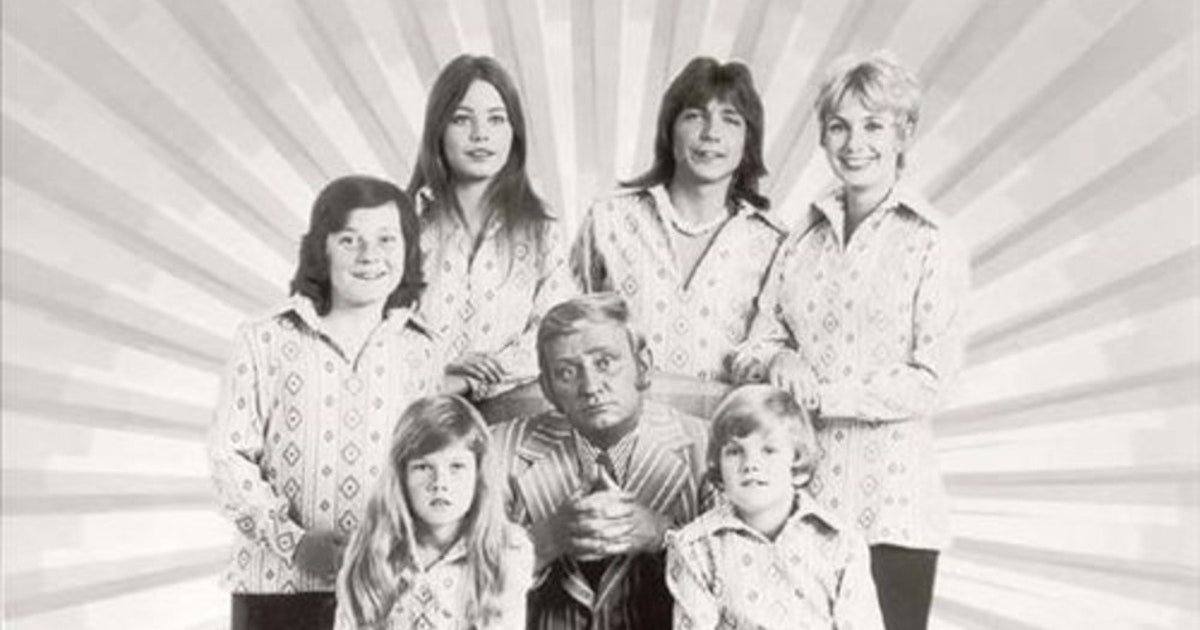
A small, tender night-song that holds the light of an ordinary longing—“Last Night” is The Partridge Family’s quiet, domestic confession about the little moments that turn into memory.
Quick anchors up front: “Last Night” appears as a track on The Partridge Family’s 1972 album Shopping Bag (Bell Records); it was written by Tony Romeo and Wes Farrell, recorded during the August 25, 1971 sessions that furnished much of the record, and it was presented as an LP track rather than a commercial A-side single (so it has no independent chart placing). The parent album Shopping Bag itself reached No. 18 on Billboard’s Top LPs and was certified Gold—meaning the song was carried into millions of living rooms even if it never charted by name.
If you remember The Partridge Family from television—those family living-room scenes, the short drives, the way a gentle melody could punctuate an episode—“Last Night” is exactly that kind of music: unflashy, intimate, and shaped to be remembered alongside a scene. The lyric sketches a small domestic picture, the kind of late-hour reflection that older listeners know by heart: you put out the light, your thoughts go to the person who matters, and ordinary objects—lamps, chairs, a small kitchen—become the stage for the ache of missing someone. That economy of detail is the song’s power; it doesn’t need a sweeping metaphor because the room itself does the work.
Behind the curtain, the creative team matters. Tony Romeo, the writer responsible for the Partridges’ most lasting singles, and Wes Farrell, the project’s principal producer and co-writer, crafted a catalogue of songs meant for radio and television circulation—catchy but emotionally neat. “Last Night” carries both fingerprints: Romeo’s knack for a memorable hook and Farrell’s instinct for arrangements that let the lead vocal sit close and warm. On the records, David Cassidy provides the lead voice that most listeners associate with the family, backed by Shirley Jones and the Ron Hicklin Singers; studio veterans such as members of the famed Wrecking Crew—Hal Blaine, Larry Carlton, Louie Shelton, Joe Osborn and others—helped shape that polished, cozy sound on the album.
Because “Last Night” was an LP track rather than a promoted single, its public life came in two main ways: first, through repeated plays of Shopping Bag in homes and on AM radio programs that featured album cuts; second, through television placement—some Partridge Family songs were featured on specific episodes, and the show itself turned tracks into moments you associated with a story beat or a household scene. That media context is important: for an older listener, the song is inseparable from the memory of seeing the family on screen and then hearing the same melody come out of a hi-fi on a weekend afternoon.
What “Last Night” means now, decades later, is partly elegiac and partly domestic solace. It’s a song that asks nothing dramatic of you—it simply admits that love is made of small, late-hour reckonings—and by doing so it offers companionship. For listeners who lived through the early ’70s, the track can act like a sound-box photograph: play it and you’re back on the couch with the TV flicker, a cup of coffee gone cold, and a brief, private ache that somehow makes you feel alive. That’s a powerful kind of nostalgia—gentle, sustaining, and true to the way memory often arrives in the small hours.
Key facts at a glance: Song: “Last Night” (Tony Romeo / Wes Farrell). Album: Shopping Bag (Bell, released March 1972), recorded partly 25 August 1971; Album peak: Billboard Top LPs No. 18; Song format: LP track (not issued as a separate charting single). Lead vocal on record: David Cassidy; production and project stewardship: Wes Farrell; session musicians include top L.A. players of the era.
If you’re one of those listeners who likes to reopen old envelopes of sound, play “Last Night” slow and close. Let the voice and the arrangement do what they always did: remind you that the smallest nights are sometimes the ones that hold the most weight.